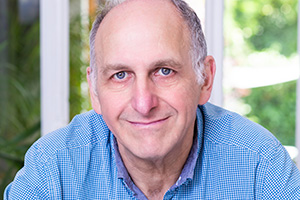Brad Ashton: "I'm nearly 94 so I'm thinking of retiring..."
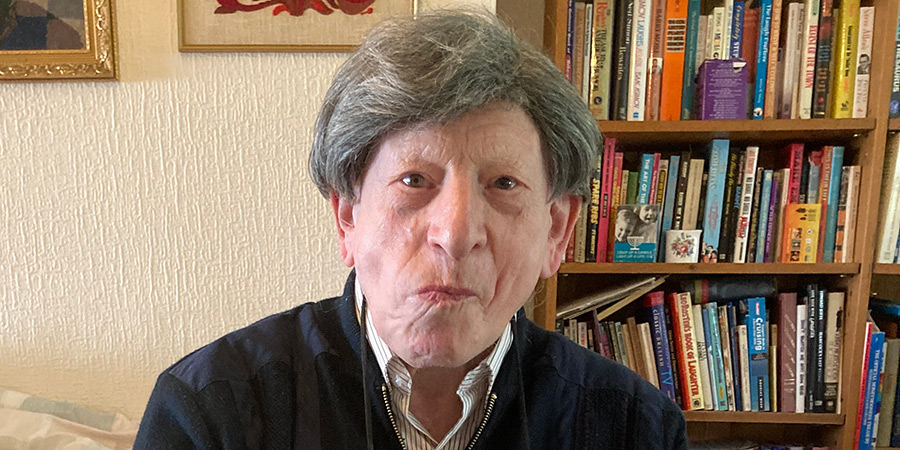
Exciting news! Doctor Who is back!
This is where comedy writers have either developed their careers or become so famous that they could ask to write for the show. Over six decades comedy writers including Steven Moffat, Mark Gatiss, Bob Baker, Richard Curtis, Douglas Adams and Simon Nye have all brought their skills to the most famous police box in the universe.
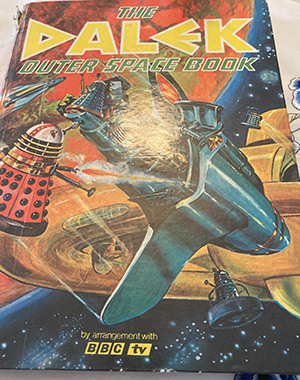
Who fans among you will be excited to learn that recently I had a delightful cup of tea and biscuits with Brad Ashton at his home in Southgate.
Brad's 1967 Dalek annual with Terry Nation was a fairly small part of his work. But I've never met a Doctor Who fan who didn't know everything there is to know about the show and to you folks I just had the equivalent of an audience with the king.
For the rest of us, Brad is an important figure in the world of comedy writing. He wrote the first ever book on the subject - How To Write Comedy. Those of us who have tried similar - James Cary, Sally Holloway, myself, Adam Bloom, Joel Morris, Scott Dikkers, Steve Kaplan - have all followed in his footsteps.
Drew Carey, the US host of Whose Line Is It Anyway? and all-round comedy legend cited Brad's volume as the book he always had to hand whenever he was writing gags.
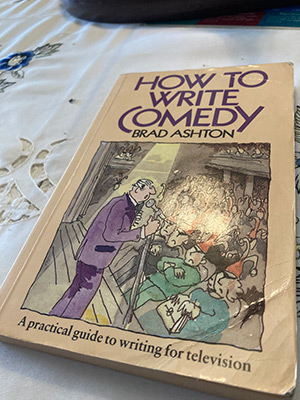
Brad is fast approaching 94 but talks and walks with the energy of a man half his age.
I've been aware of Brad for as long as I've been writing comedy. In the early 1980s his name and book were occasionally mentioned in the hallowed corridors of 16 Langham Street, home to a legion of posh-voiced radio producer chaps and their mostly female "broadcast assistants", without whom most shows would probably have not made it to air.
There was an element of snobbery around Brad - a working-class Jewish lad from the world of gag writing which pre-dated the Oxbridge takeover of TV comedy by many years.
The Footlights generation and, to be honest, my own little gang of alternative comedians had little time for the old school comics with their bow ties and frilly shirts.
What I didn't know then was that Brad had already enjoyed a rich and varied calling as a comedy writer working among the greats for nearly three decades.
Not only that, but for many years he turned up for work at the famous Associated Comedy Writers' building.
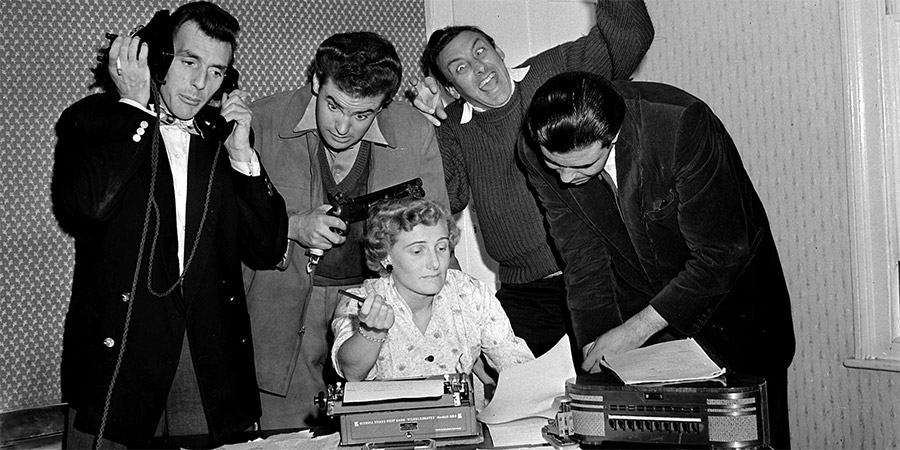
I had heard of these legendary offices close to BBC TV Centre where Ray Galton and Alan Simpson worked every day alongside the likes of Eric Sykes and Frankie Howerd.
I had this image in my head of Associated Comedy Writers in Shepherd's Bush as being some incredible creatives building like something out of Mad Men. Brad sketched the reality for me which was duller and yet much more preferable.
The Uxbridge Mafia
"It wasn't a separate building," he said, "it was a couple of floors above a Greengrocer on the Uxbridge Road.
"Ray and Alan worked there most days for 20 years, first with Hancock then on the Steptoe scripts."
Brad's career began when he was introduced to Denis Norden, who set him up to write for Benny Hill.
Hancock's brother Roger was a regular presence at Associated, even after the former had ditched his writers. "Roger was a successful agent who signed up many comic actors." These included Spike Milligan and Peter Sellers who were often seen there.
Eric Sykes was the mainstay: "he had a bath in his office." Frankie Howerd also became a regular, not least because Eric's bath was big enough for him to stretch out in.
"Howerd came in every Tuesday to pick up more jokes, including those side remarks to the camera that everyone thought he was delivering off the cuff, but were all scripted."
Brad told me they were never allowed to write jokes for whoever Frankie was performing with. "He'd say 'it's my show, I'm the one who gets the laughs'" which sounds ungenerous but you know, he was right. Watching Howerd in old episodes of Up Pompeii! you can see how nobody comes close to matching him.
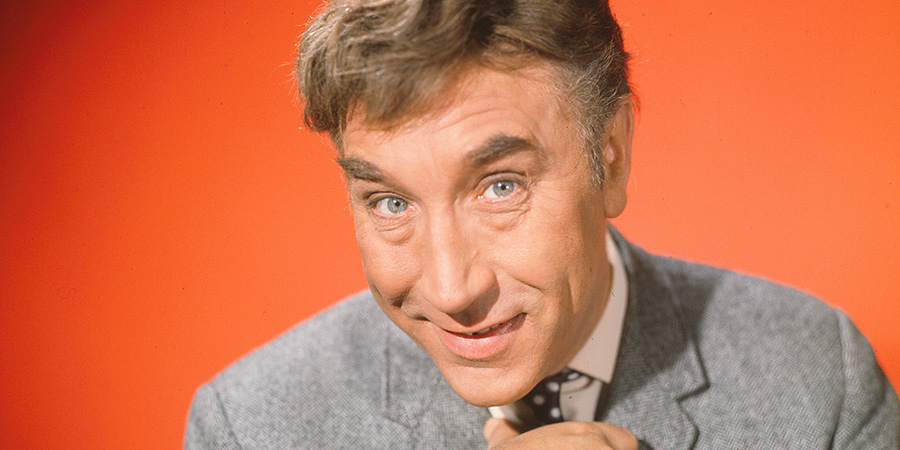
"Everyone knew Frankie was gay but it played against the comic image of him as the everyman bloke chasing after dolly birds.
"I remember Dick Vosburgh and I had to go round to his house to work on a script once and even though he was off stage he acted like that character to try and persuade us he wasn't gay."
I asked Brad how he had ended up writing the Dalek annual. "I started doing books because I needed the money."
As well as How To Write Comedy, Brad produced many more books including The Funny Thing About Writing Comedy and The Job of a Laughtime.
Bob's Full House
Another famous name associated with the Associated building was Bob Monkhouse, who was happy for the services of the assembly line of gag writers there. "Bob always employed four writers full time. He was paying me £8,000 a year."
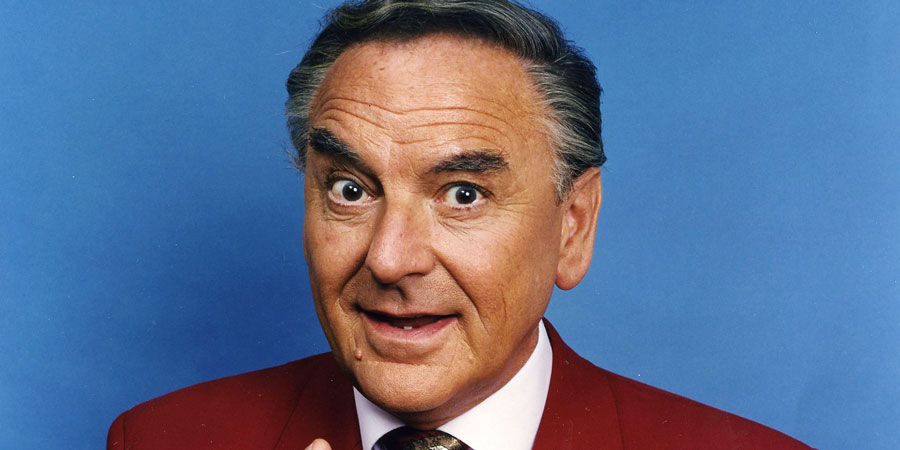
Bob Monkhouse was obsessed with his role as the curator of all British comedy, which I knew from personal experience. In the early days of alternative comedy the man was mocked mercilessly by our gang.
Fairly quickly though he assumed legendary status. Around the time in the mid-80s when Jeremy Hardy and I were sharing a flat, we'd gone to Television Centre to watch a friend recording a show.
We bumped into Monkhouse at the reception and to our amazement he immediately recognised Jeremy. "Jeremy Hardy," he said, "I love your work" and proceeded to reel off Jeremy's routines that he'd performed on Rory Bremner's TV series.
"I'm working with a young comic called Bradley Walsh," he said, "and I've given him all your videos to watch. Not for the lines of course, but to show him how a young comic needs to stand out these days."
Brad experienced Bob's curating habits first hand - his main writer, Denis Goodwin, wrote up every line Brad and his gang had written and indexed every gag.
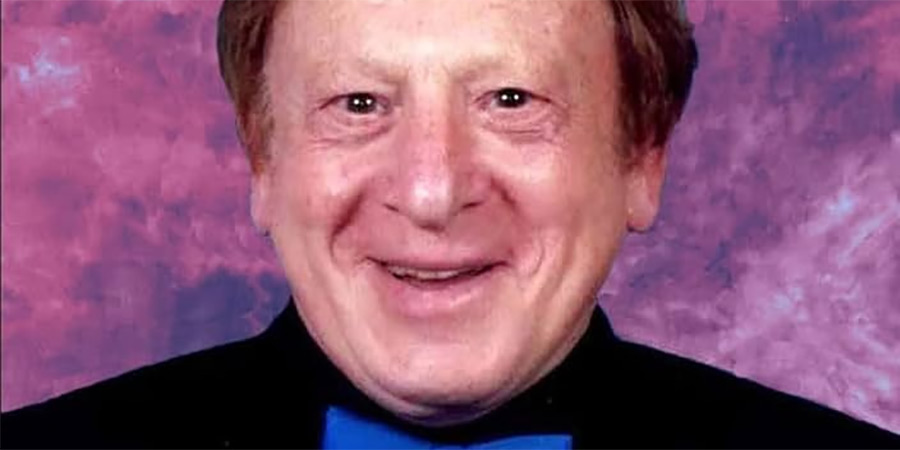
Brad wrote for countless comedians and TV presenters. The line was blurred, as it is now between panel show presenters like Hughie Green of Opportunity Knocks and Bruce Forsyth who had cut his teeth as a comedian.
"Brucie always got angry if the audience didn't laugh at his jokes," but at least he sounded easier to work with than Green who described Brad to his face as "the little Jewboy writer."
It was such a pleasure spending time with Brad, and a highlight was when he took me to his office, bounding up the stairs leaving me panting for breath. The room was packed to the rafters with books, videos, reel to reel tapes and scripts.
He had so many anecdotes I probably missed around half of them, I'll leave you with a few more that I wasn't able to fit into the above.
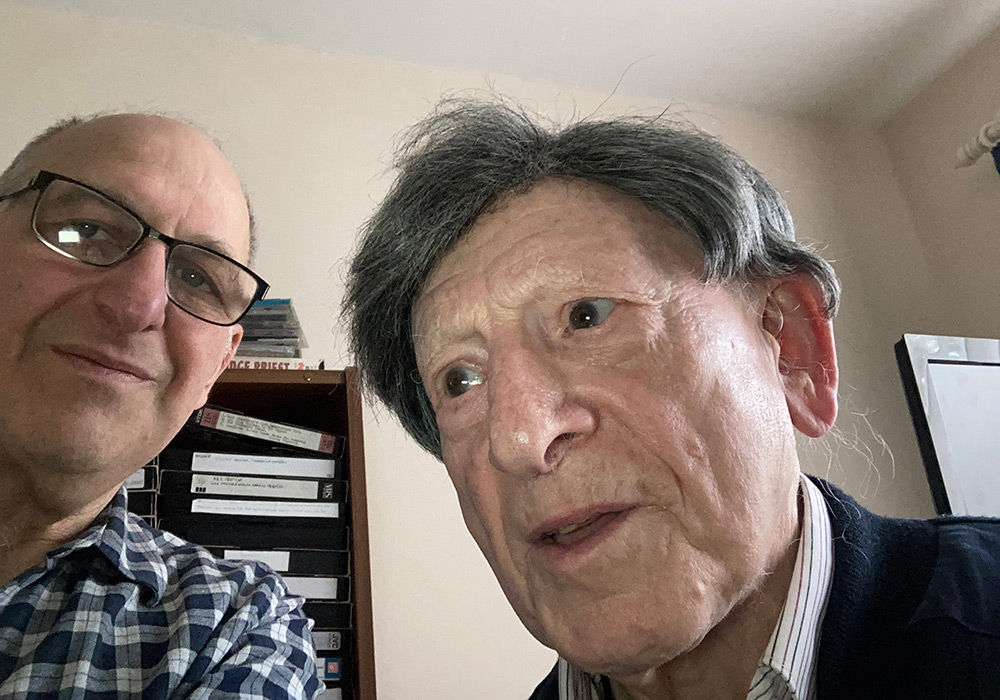
Some Mothers Do 'Ave 'Em was originally offered to Norman Wisdom but he turned it down...
...One of the writers sent to work on gags with Groucho Marx was John Wells, the satirist and Private Eye writer, Groucho said he couldn't work with him "because he talks like he has a plum in his mouth"...
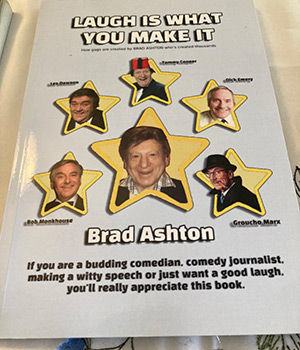
...one time we wrote some sketches for Dick Emery but the filming had to be abandoned because the producers had sent out for Fred Emney. (If you're under 60 you'll need to Google them to understand this)...
...Tommy Cooper would never try a routine with new props until he could be sure he could purchase it from the D and Z Magic Shop in Slough - that just happened to be owned by his brother...
...Brad went to school with Harold Pinter but wasn't a fan. "He was too cocky."
How To Write Comedy is definitely worth a read as one of the first books about writing comedy for TV. And, for a certain subset among you, check out the 1967 Dalek Outer Space Book.
Help British comedy by becoming a BCG Supporter. Donate and join us in preserving, amplifying and investing in comedy of all forms, from the grass roots up. Advertising doesn't cover our costs, so every single donation matters and is put to good use. Thank you.
Love comedy? Find out more

